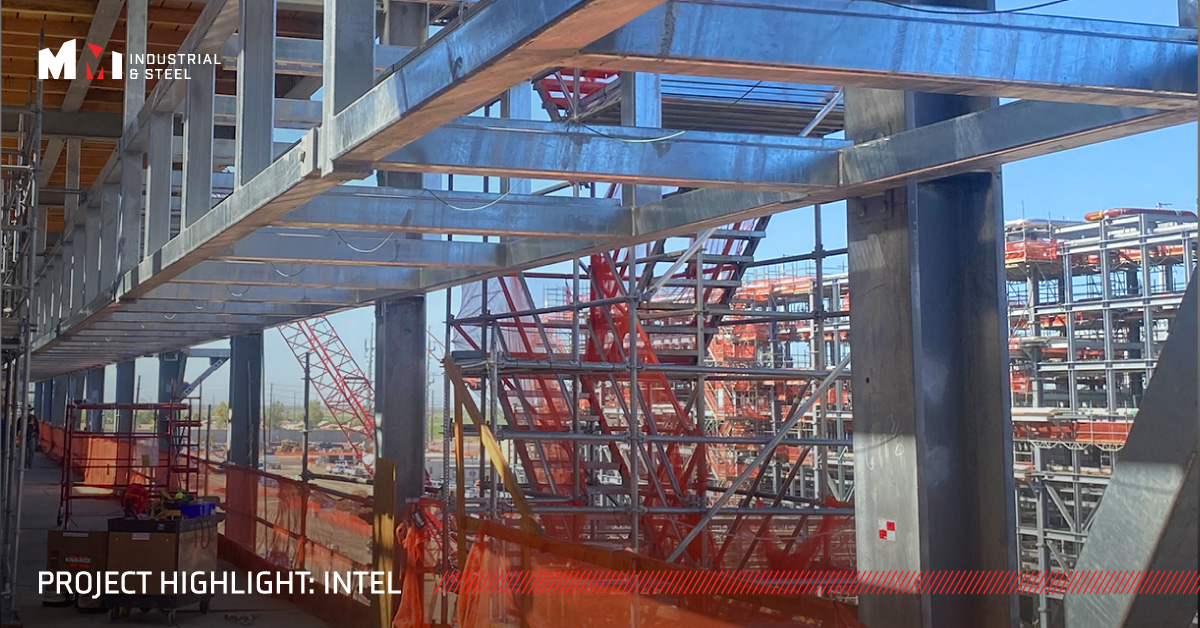
In today's rapidly evolving industrial landscape, the importance of sustainable and ethical sourcing of raw materials cannot be overstated. This is true, even for the steel industry, where the impact of sourcing practices resonates across environmental, economic, and social dimensions. As a leading contractor in this field, MMI Industrial & Steel is committed to recognizing and addressing the significance of sustainable sourcing. This commitment aligns with who we are as a company and the mark we want to leave (or not leave, in this case) on our world, guiding us to make responsible choices in our material procurement.
Importance of Sourcing Raw Materials from Sustainable and Ethical Sources
Though sustainable sourcing has become somewhat of a buzzword, it’s so much more than that. It's a critical practice that affects the entire supply chain and the broader ecosystem. By prioritizing sustainable and ethical sources, companies can significantly reduce their environmental footprint, promote fair labor practices, and support the long-term viability of natural resources.
1. Environmental Impact: The steel industry is a major contributor to greenhouse gas emissions and energy consumption. Sourcing raw materials sustainably can mitigate these impacts by ensuring that the materials are extracted and processed in environmentally friendly ways. This includes minimizing carbon emissions, reducing waste, and promoting energy efficiency.
2. Social Responsibility: Ethical sourcing involves ensuring that the rights and well-being of workers involved in the supply chain are respected. This means avoiding suppliers that exploit labor, ensuring fair wages, and providing safe working conditions. Companies that prioritize ethical sourcing contribute to the betterment of communities and help combat issues like child labor and forced labor.
3. Economic Viability: Sustainable sourcing can lead to cost savings and increased efficiency in the long run. By investing in sustainable practices, companies can reduce their reliance on finite resources, avoid regulatory fines, and improve their market reputation. Consumers and businesses alike are increasingly demanding transparency and responsibility from the companies they support.
What to Look for in Sustainable Steel Sourcing
When it comes to sourcing steel sustainably, several key factors should be considered:
1. Certification and Standards: Look for suppliers that adhere to recognized environmental and social standards. Certifications such as ISO 14001 for environmental management and ISO 45001 for occupational health and safety indicate that a supplier is committed to sustainable practices.
2. Recycling and Waste Management: Suppliers that use recycled materials and have efficient waste management systems contribute to the circular economy. Steel is one of the most recyclable materials, and sourcing from suppliers that prioritize recycling can significantly reduce the industry's environmental impact.
3. Energy Efficiency: The production of steel is energy-intensive. Choosing suppliers that use energy-efficient technologies and renewable energy sources can help lower the carbon footprint associated with steel production.
4. Transparency and Accountability: Partner with suppliers who are transparent about their sourcing practices and supply chains. This includes providing detailed reports on their environmental impact, labor practices, and overall sustainability efforts.
Nucor: A Benchmark in Sustainable Steel Sourcing
Nucor, one of the leading steel producers in the United States, exemplifies the principles of sustainable and ethical sourcing. Their commitment to sustainability is evident through their comprehensive initiatives and transparent reporting. According to Nucor's sustainability page (https://nucor.com/sustainability), they focus on several key areas:
1. Environmental Stewardship: Nucor has made significant strides in reducing its carbon footprint. They utilize electric arc furnace (EAF) technology, which is less energy-intensive and allows for higher rates of recycling. This technology helps Nucor produce steel with a lower environmental impact compared to traditional blast furnace methods.
2. Social Responsibility: Nucor is dedicated to creating a safe and inclusive work environment. They invest in their employees through continuous training and development programs, ensuring that their workforce is skilled, safe, and valued.
3. Economic Sustainability: Nucor's approach to sustainability also includes economic viability. They focus on operational efficiency and innovation, which not only reduces costs but also enhances their competitive edge in the market.
MMI's Commitment to Sustainable and Ethical Sourcing
At MMI Industrial & Steel, we understand the complexities and challenges associated with sourcing sustainable materials in the steel industry. Despite these challenges, we are committed to making responsible choices that align with the ethos of our company and contribute to a better future.
We recognize that partnering with suppliers like Nucor, who are at the forefront of sustainability, is crucial to achieving our goals. By choosing suppliers that prioritize environmental stewardship, social responsibility, and economic sustainability, we can ensure that our projects are not only successful but also responsible and ethical.
The importance of sustainable and ethical sourcing in the steel industry cannot be underestimated. By focusing on these principles, companies can drive positive change, reduce their environmental impact, and promote social equity. MMI Industrial & Steel is proud to be a part of this movement, and we are dedicated to continuing our efforts to source materials that meet the highest standards of sustainability and ethics. Together, we can build a better, more sustainable future for all.



